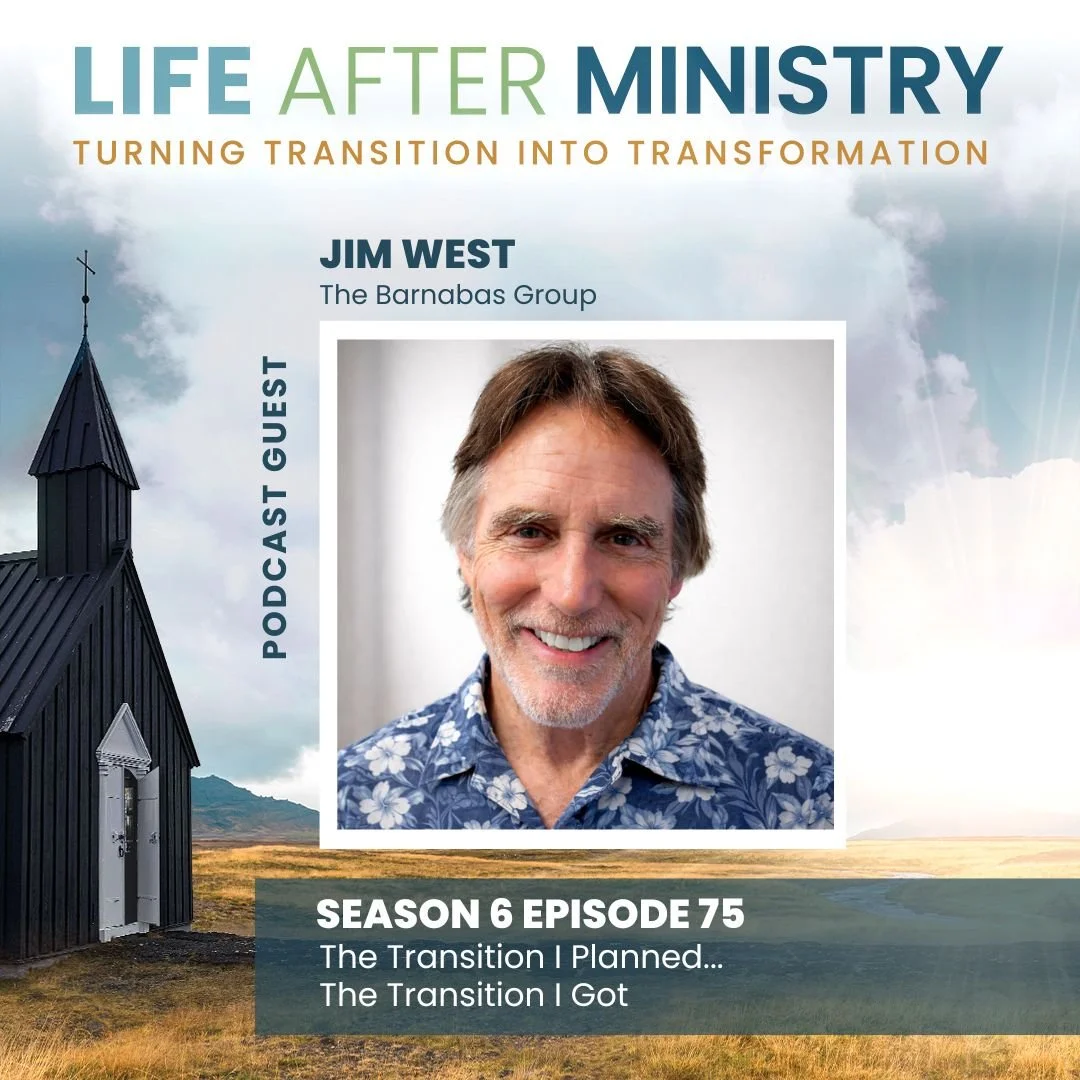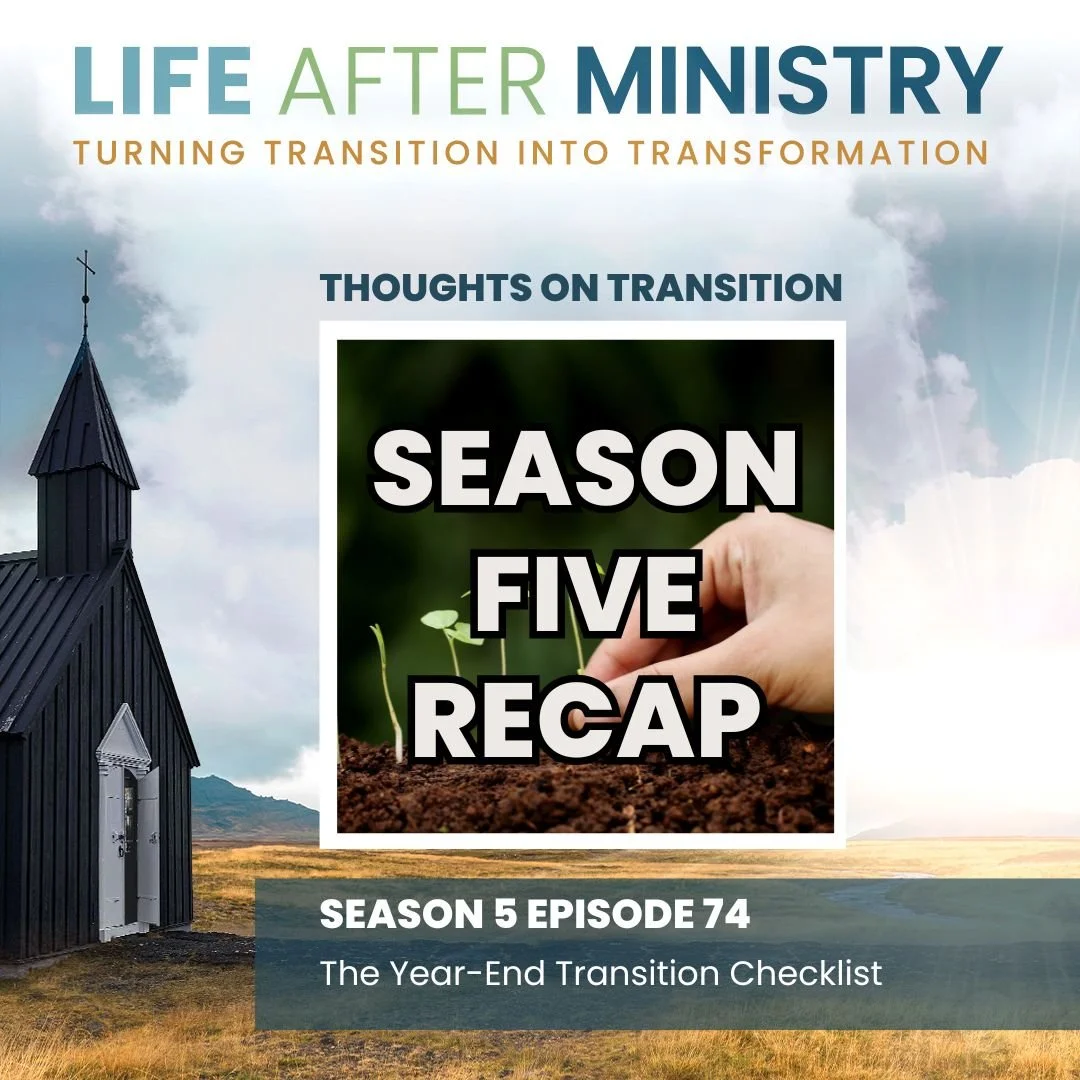Before the Warning Light: A Pastor’s Guide to Mental Fitness
There’s a hum many leaders learn to ignore. It’s not a moral failure or a headline crisis. It’s the steady background noise of decision fatigue, unfinished grief, and the quiet pressure of being needed again tomorrow. Pastors and nonprofit directors become skilled at operating above that noise. But the soul registers it, and sooner or later the warning lights begin to flicker.
What if the first act of courage is not to power through, but to train differently?
Mental Fitness vs. Therapy: Two Good Things, One Clear Difference
The church has long benefited from counseling and therapy. When a leader is in acute pain, tangled in trauma, or facing patterns that require clinical expertise, therapy is a gift. Mental fitness is not a substitute for that gift. It is a different category, aimed upstream of crisis. Think of it like strength and conditioning for the inner life - small, regular practices that build capacity before problems become emergencies.
Athletes don’t wait for a torn ligament to begin training. They train to reduce the odds of injury, to perform freely, and to recover faster when setbacks come. In the same way, mental fitness develops awareness, attention, and alignment. It lowers noise so you can notice the Spirit’s leading. It strengthens practices that hold under pressure. It aligns identity with calling so outcomes don’t hijack worth.
A Biblical Frame for Endurance
Scripture never promises leaders a frictionless road. Instead, it gives a frame for enduring with clarity and joy. Hebrews invites us to “run with endurance the race that is set before us, looking to Jesus” (Heb. 12:1–2). Endurance is not passive. It is trained. Paul says our “outer self is wasting away,” yet the “inner self is being renewed day by day” (2 Cor. 4:16).
Renewal has a cadence - day by day. That cadence is the soil where mental fitness grows.
Proverbs guards the heart as “the wellspring of life” (Prov. 4:23). Guarding is active. It includes boundaries, but also formation: what we attend to, the stories we tell ourselves, and the people we let speak into our lives. Mental fitness, then, is discipleship’s close cousin. It is the practical craft of attending to the inner life so love can flow through real pressure without drying up.
Naming the Real: Entropy, the Enemy, and Evil
Leaders face at least three constant forces. First, entropy: everything breaks down without care. Buildings, budgets, habits, and attention all drift without maintenance. Second, the enemy: spiritual opposition is not an abstraction. Plans get disrupted. Temptations feel better timed than coincidence would allow. Third, evil: sin lives in us and in systems. We do what we do not want, and we fail to do what we should.
Mental fitness doesn’t make these disappear. It trains leaders to notice earlier, choose better, and recover faster. It gives language to name what’s happening without shame, which is the doorway to wise action.
Lowering the Noise, Raising the Signal
Many leaders can’t hear what their soul is saying because the interior volume is too loud. Meetings bleed into email which bleeds into pastoral care which bleeds into a late-night scroll that pretends to be rest. The work is sacred, but the way we carry it can be noisy. Mental fitness begins with quieting the room.
Start with three simple dials:
Attention Audit: For one week, take 60 seconds at the top of each hour to ask, “What is capturing my attention? Is it chosen or hijacked?” Write a word or two in a note on your phone. Patterns appear quickly. Once you see them, you can steward them.
Recovery Micro-Rhythms: Between commitments, insert a two-minute pause: stand, breathe slowly, and pray “Lord Jesus Christ, have mercy on me” on the exhale. This is not performative. It is oxygen for the interior life. Two minutes is enough to reset the nervous system.
Signal Practice: End each day with Noticing: Where did I sense grace? Where was I reactive or numb? What truth do I need to carry into tomorrow? Keep it to three bullet points. The goal is not eloquence; it is awareness.
Identity Before Usefulness
Ministry settings often reward usefulness. Sermons must be preached, budgets balanced, people comforted. The temptation is to tether identity to outcomes. But the gospel locates identity in belovedness, not productivity. Leaders who train mental fitness rehearse this on purpose. They talk with God about who they are before they talk with God about what they do.
Try this weekly liturgy: sit with John 15. Ask, “Where am I abiding? What fruit am I trying to manufacture without remaining?” Name one place to surrender control and one place to take faithful action. Share it with a trusted peer. Accountability rooted in belovedness fosters courage without condemnation.
Organizational Care That Actually Helps
Boards and executive pastors carry a different stewardship: not only their own interior life, but the conditions under which others work. Organizations that strengthen mental fitness make a few countercultural moves.
Separate Care from Supervision. Staff need safe, confidential space to be human. When care is in the same hands as compensation and evaluation, people edit themselves. Create confidential pathways for proactive support so staff can be known for who they are, not merely what they deliver.
Outcomes Over Optics. Don’t fund programs you hope no one uses. Define outcomes that matter - clarity, focus, decreased reactivity, improved follow-through - and measure them. Healthy people serve the mission better. It’s not either/or.
Accessibility Wins. Fit rhythms into real lives. Short sessions by phone during a kid’s practice or a lunchtime walk are better used than idealized programs no one can reach.
Normalize Early Help. Teach that asking for support is a sign of stewardship, not failure. Celebrate case studies where early conversations prevented later crises.
Practices for the Long Haul
Here are field-tested practices leaders can adopt without overhauling their week:
Sabbath As Resistance: Guard one day as interruption-free. Not a catch-up day, a renewal day. Prepare for it like you prepare for Sunday. Let your team see you keep it.
Two Lists, One Calendar: Keep a People List and a Projects List. Every Monday, schedule the top three relational investments and top three deliverables. If both lists never touch your calendar, your week is wishful thinking.
Meeting Warm-Starts: Begin key meetings with one clarifying question: “What does success look like for this hour?” Then ask, “What could get in the way?” You’ll cut noise and decision fatigue by half.
Quarterly Reset: Once a quarter, take a half-day away. Read back through your daily “Noticing.” What themes emerge? Celebrate grace. Repent where needed. Choose one practice to intensify for the next quarter.
When the Lights Are Already Flashing
Many leaders find this conversation late. If you’re depleted, you might need both: a therapist to care for acute wounds, and mental fitness practices to begin rebuilding capacity. Start tiny. Choose one practice for seven days. Ask your board chair or a trusted elder to cover a responsibility for two weeks. Tell the truth about your limits. You are not the exception to human design.
A Word to Boards
Your stewardship is pastoral. Funding preventative care is not an optional perk. It is strategic obedience. Your pastors are not disembodied preaching machines. They are image-bearers carrying weight for others. Invest in their interior life and you invest in the health and witness of the church for years to come.
Jesus said we would be known by our love. Love is costly when the work is messy. Mental fitness doesn’t make the work easier; it makes us more available to God in the middle of it. Lower the noise. Raise the signal. Anchor identity in belovedness. Build small, repeatable practices. Over time, the hum quiets, and the heart hears what it needs most.
If you want to go deeper, listen to the full conversation on the Life After Ministry podcast for practical on-ramps and a leader’s honest story of putting this into practice.
With 25+ years in faith-based executive leadership, Matt Davis knows the wins, the losses, and everything in between. As Executive Pastor, he led a team of 140+, tackling the challenges that come with big vision and real impact. As President of Ministry Transitions, he guides churches through tough leadership changes. Matt and his wife, Marilee, host the Life After Ministry Podcast, where they dive into real talk with former pastors who’ve found their kingdom assignment beyond church walls - unfiltered stories of grit, growth, and God’s purpose beyond the pulpit.







